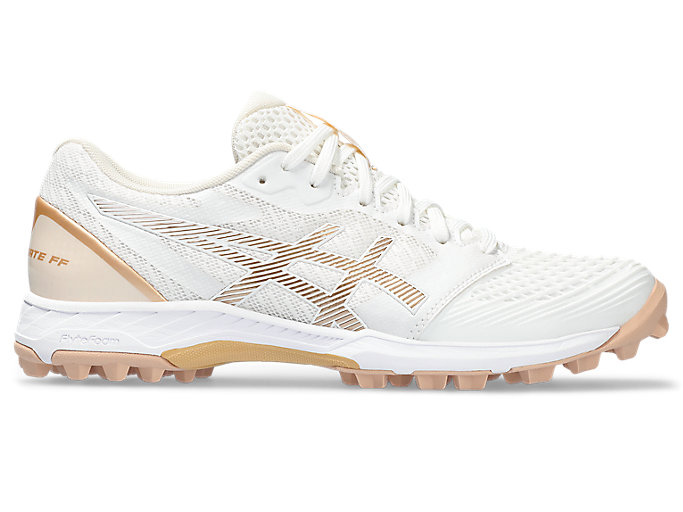FIELD ULTIMATE FF 2
The FIELD ULTIMATE™ FF 2 is a lightweight field shoe designed for competitive club or professional players.
The PU upper and no-sew construction is designed to feel feather-light while offering support in key areas. Ankle support is incorporated into the quarter panel to give additional protection.
FLYTEFOAM™ cushioning creates a lightweight and responsive underfoot feel. It allows you to quickly break away from defenders and dash towards the goal. The TRUSSTIC™ technology in the midfoot increases stability, making it easier to accelerate forward and cut quickly when you're in motion.
The outsole features AHARPLUS™ rubber for unmatched durability, with the pattern designed to improve grip and acceleration.
- TRUSSTIC™ technologyImproves torsional stability
- Internal heel counterImproves support at the rearfoot
- FLYTEFOAM™ technologyProvides lightweight cushioning and impact absorptionRearfoot GEL™ technology
- Improves impact absorption and creates a softer feeling at footstrikeAHARPLUS™ outsole rubber
- Helps improve durabilityThe sockliner is produced with a solution dyeing process that reduces water usage by approximately 33% and carbon emissions by approximately 45% compared to the conventional dyeing technology






